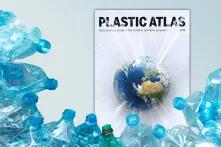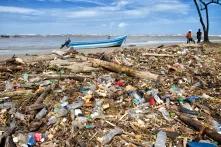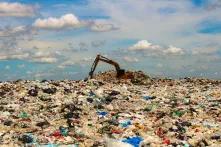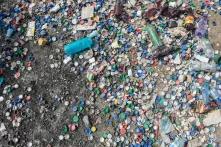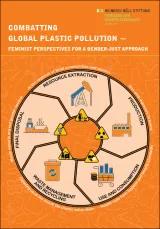Plastic
We live in a world full of plastic - Plastic has become pervasive in our daily lives. It is in our food and drinking water, in our clothing and cosmetics, in our consumer articles and vehicles. But we are just beginning to understand the full extent of how plastic pollutes and contaminates our environment and bodies. Who is responsible and what are the effects on humans and nature? What are the solutions? ▶ In order to change course we need a sound understanding of the players, the extent and the implications of the plastic crisis. Our plastics dossier is a contribution to this cause.
Plastic Atlas | Book for Children | Infohub | Articles | Films | Publications
The Plastic Atlas has the hard facts, data and figures to prove that the story of plastic that industry is telling us is a myth. We need urgent and drastic reductions in plastic production and consumption and regulation at the local, national and global level that tackle plastic pollution at the source.
Our curated information hub provides well-researched publications, websites, and media on various aspects of the plastic crisis. For instance, delve deeply into the impact of plastic on the climate, explore how microplastic is polluting the oceans or find out how the plastic industry can be stopped.
The Plastic Atlas: Facts & Figures about the World of Synthetic Polymers - Heinrich-Böll-Stiftung
 Watch on YouTube
Watch on YouTube
This is how the Delaperrière family goes shopping. By buying this way, they gener-ate very little waste. The family used to throw out two large bags of trash a week. That has gone down to one small bag a month.
Marjun and Anne are paying for their canoe trip in an unusual way – with rubbish. Today is World Cleanup Day, and here in Copenhagen, they are collecting rubbish. The firm that rents out the canoes is one of over 100 companies that are supporting the cleanup effort.
Kai Schächtele: "We separate our rubbish and throw it into the right bins, and we think, ok, a disposable coffee cup is not the best, but if we dispose of it properly, we’ve done everything right – after all, it will be recycled. But in fact we are kidding ourselves, because a lot of the rubbish we generate doesn’t stay here but ends up somewhere else in the world."
